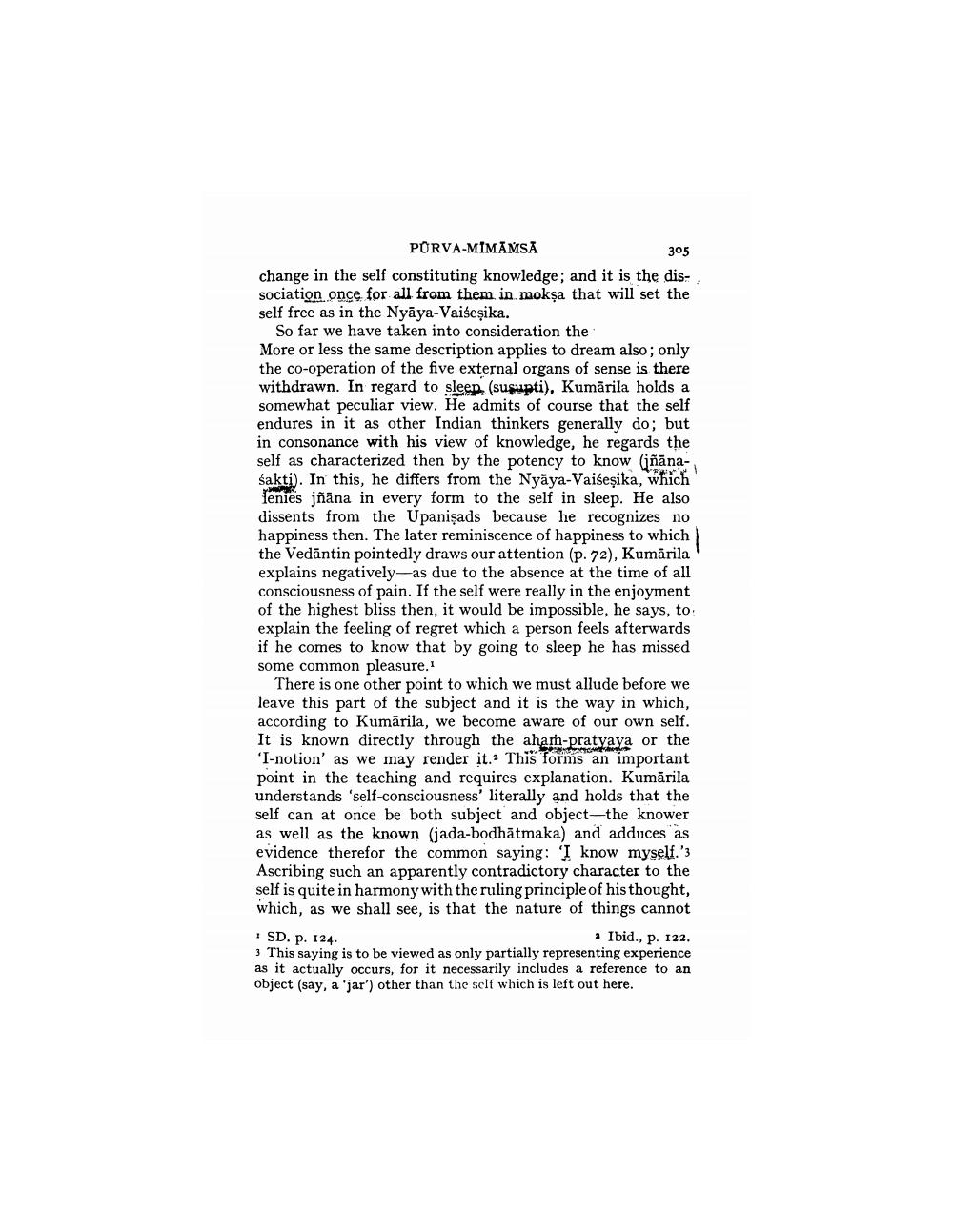________________
305
PORVA-MIMĀMSA change in the self constituting knowledge, and it is the dissociation once for all from them in mokşa that will set the self free as in the Nyāya-Vaišeşika.
So far we have taken into consideration the More or less the same description applies to dream also; only the co-operation of the five external organs of sense is there withdrawn. In regard to sleep. (suşupti), Kumārila holds a somewhat peculiar view. He admits of course that the self endures in it as other Indian thinkers generally do; but in consonance with his view of knowledge, he regards the self as characterized then by the potency to know (jñānasakti). In this, he differs from the Nyāya-Vaiseşika, which lenies jñāna in every form to the self in sleep. He also dissents from the Upanişads because he recognizes no happiness then. The later reminiscence of happiness to which the Vedāntin pointedly draws our attention (p. 72), Kumärila explains negatively-as due to the absence at the time of all consciousness of pain. If the self were really in the enjoyment of the highest bliss then, it would be impossible, he says, to explain the feeling of regret which a person feels afterwards if he comes to know that by going to sleep he has missed some common pleasure.
There is one other point to which we must allude before we leave this part of the subject and it is the way in which, according to Kumārila, we become aware of our own self. It is known directly through the aham-pratyaya or the 'I-notion' as we may render it. This forms an important point in the teaching and requires explanation. Kumārila understands 'self-consciousness' literally and holds that the self can at once be both subject and object--the knower as well as the known (jada-bodhātmaka) and adduces as evidence therefor the common saying: 'I know myself.'3 Ascribing such an apparently contradictory character to the self is quite in harmony with the ruling principle of his thought, which, as we shall see, is that the nature of things cannot · SD. p. 124.
· Ibid., p. 122. 3 This saying is to be viewed as only partially representing experience as it actually occurs, for it necessarily includes a reference to an object (say, a 'jar') other than the self which is left out here.




